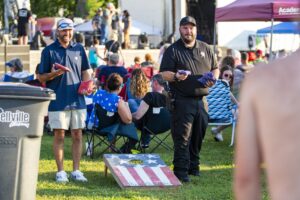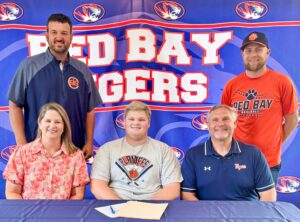Making it hard to do business
By By Suzanne Monk / managing editor
March 28, 2004
I don't usually get worked up about zoning ordinances, but this seems to be exactly the kind of storm in a teacup for which Meridian is famous. Lots of time, lots of lawyers, lots of ill will and, at the bottom of it, a problem that has shown itself capable of resolution.
The next time you're driving north on Highway 39, take a look around at all the development. There are new stores, banks and professional buildings. Harry Mayer's, a downtown icon, is moving there in October.
The area is a growing business district, a bright spot in Meridian's economic development, where it seems something is always under construction.
One undeveloped parcel is just south of the law offices of Beauchamp Jones, Craig Conway and George Culpepper. It's a long, narrow vacant lot in front of Country Squire Estates that the Meridian City Council insists must be zoned single-family residential instead of commercial.
The owner of the property is Jack Joyner, who developed the adjoining subdivision. He's been fighting with the city about the frontage for years, and now he's playing his last card.
Joyner has filed a lawsuit in Lauderdale County Circuit Court in an attempt to force the city council to re-zone.
A little background
Joyner bought the Highway 39 North property in November 1978. His attorney, John Morse of Meridian, says Joyner intentionally saved the frontage section for potential commercial development.
Everything was fine until January 1994, when the city re-zoned the parcel from light commercial to single-family residential as part of a comprehensive zoning ordinance. Joyner asserts, and the city denies, that he was not notified of the change before it occurred.
And, then there was a tax snafu.
Even though the city had zoned the parcel single-family residential, it was still assessed as light commercial by the tax assessor until 2001 resulting in a larger property tax bill. The problem wasn't corrected, Joyner said, until tax year 2002.
Joyner has twice asked the city council to re-zone the parcel so that it can fulfill its "highest and best use" as a site for business and professional offices. Both requests were denied.
Near-miss solution
The most recent incarnation of this problem, before Joyner filed suit, was in April 2003 when he reached a compromise with residents of Country Squire Estates.
Understanding that they wanted a "buffer" between their houses and potential businesses, Joyner scaled back his request. Instead of 2.68 acres of frontage, he asked for less than 1 acre to be re-zoned.
It looked like the two sides had arrived at a solution everyone could live with.
The day before the Meridian City Council voted on the question, George Thomas, who represents Ward 1, said: "If they've reached an agreement, I think we'll probably go with that agreement. Something needs to be done for the sake of both sides involved."
The next night, it was a different story.
The council said it would be "illegal" to re-zone the parcel because it had shown no evidence of a "change of character." Which is odd. In April 2003, Highway 39 North was showing clear signs of becoming a mecca for small business.
Nevertheless, the council denied the request.
Last resort lawsuit
After the council's vote, Joyner said he planned to talk the situation over with an attorney. He wanted a zoning change. Country Squire residents weren't thrilled with the idea, but they were willing to compromise.
The Meridian City Council was the deal-stopper although, truth be told, I'm sure more than one Country Squire homeowner breathed a sigh a relief.
Joyner has been building houses in Meridian since 1959 at subdivisions like Country Squire Estates, Greenland Hills, North Pointe, Briarwood Estates and Eagle Pointe.
In some respects, Joyner's having a bad year. Just last week, I wrote a story about the owners of nine Eagle Pointe homes filing suit against him in circuit court because their homes flooded in April 2003.
Maybe he's just out of patience.
In addition to the zoning change, Joyner's lawsuit demands $330,678.56 an unusually exact figure. Morse said it represents reimbursement for overpayment on his tax bill, and the decrease in property value based on a $5 per frontage foot offer from a commercial buyer.
City's response
Meridian attorney Bill Hammack, writing for the city, says Joyner can't file a lawsuit because the statute of limitations has run out. He points out that Joyner can still use his land he just can't build offices on it.
So, I guess what Joyner really needs is someone who wants to build a $150,000 house on top of a busy highway.
I must be missing something. I kept looking in the city's response to Joyner's lawsuit for some mention of why re-zoning would be "illegal," but I didn't see one. Also notably absent is any mention of requiring the parcel to show a "change of character."
From my perspective, it looks like a repetition of a common business complaint: Why does Meridian throw up barriers to the economic development it claims so desperately to want?













